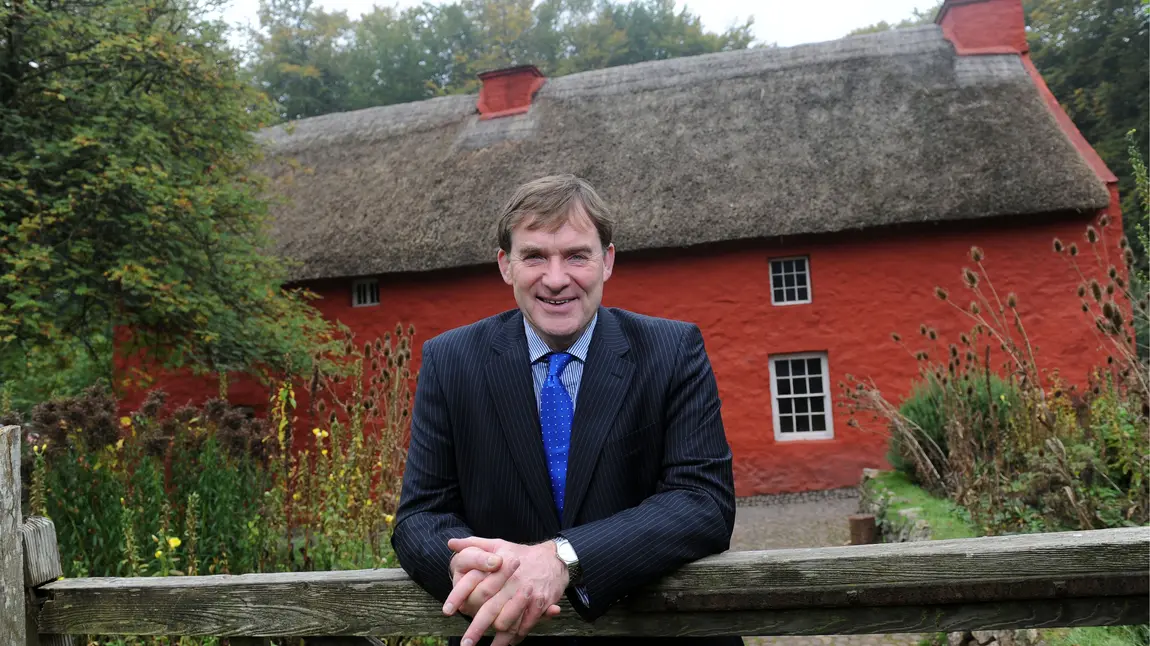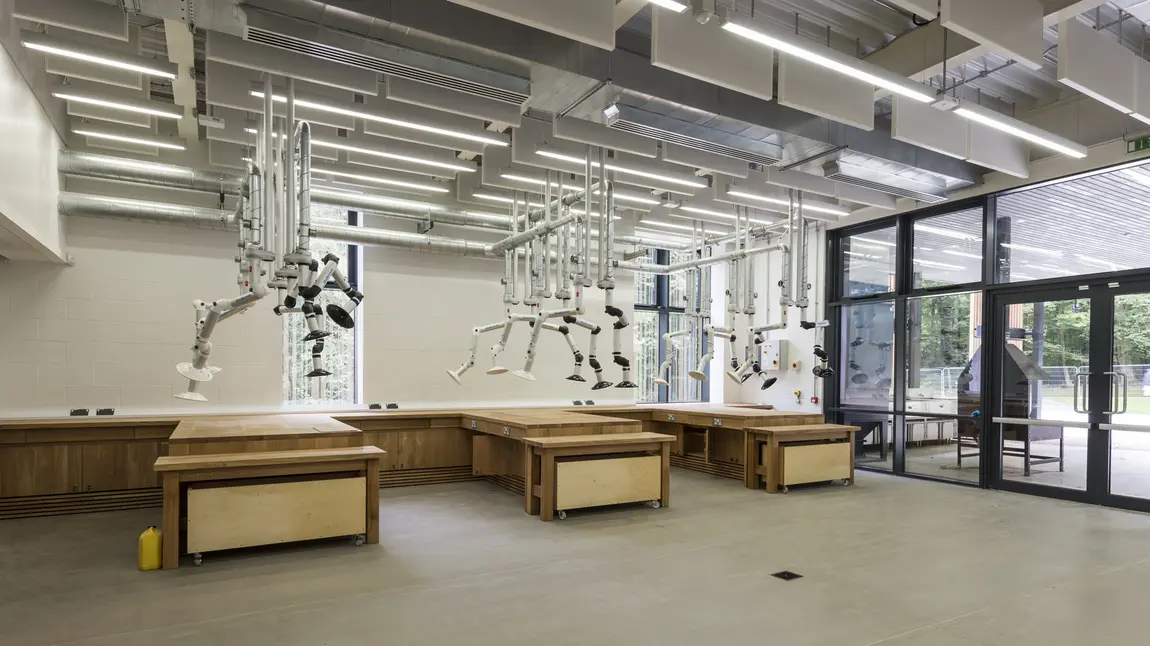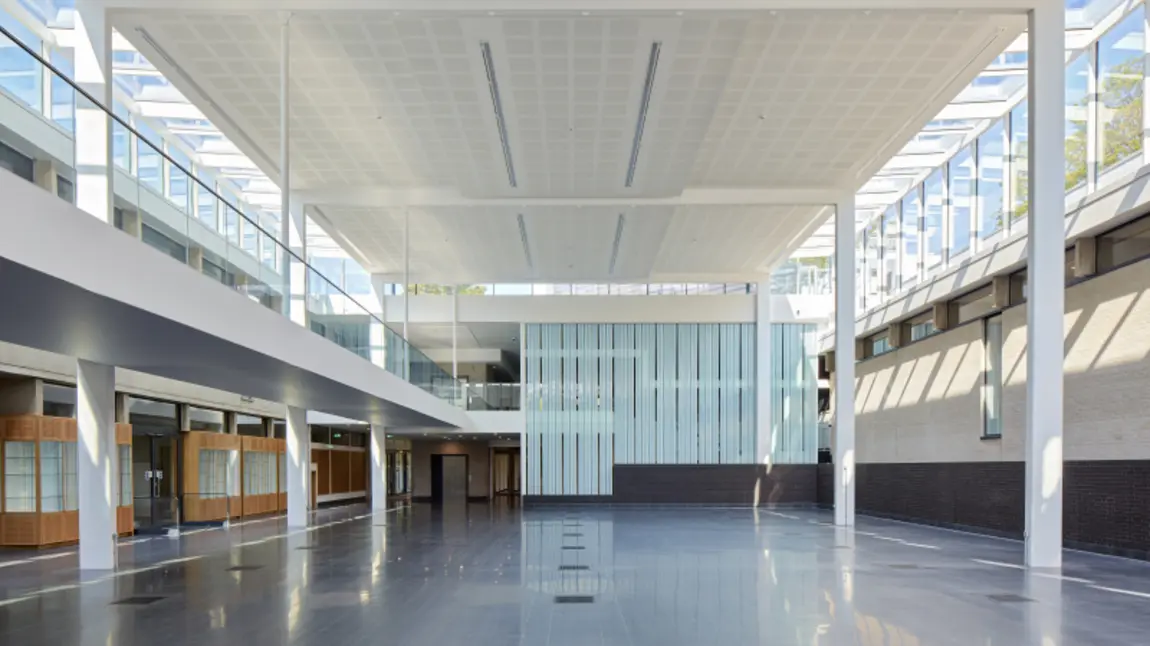What heritage means to me: David Anderson

How do you define heritage?
I love Amin Malouf’s analysis in his book On Identity that we are beings made from multicoloured threads, with a vertical heritage that we receive at birth, and a horizontal heritage that is acquired on our journey through life. This definition seems to me to reflect the diversity and complexity of human experience.
Tell us what’s happening at Amgueddfa Cymru - National Museum Wales, and St Fagans in particular
The museum’s vision is “Inspiring People, Changing Lives”. Our ambition is to achieve greater social justice in Wales, through public participation in the work of the museum. We want to expand the public's awareness that they have inalienable cultural rights, and that it is our responsibility as a museum to contribute to the development of cultural democracy. We are building on the distinctive traditions of democratic thought in Wales, and in particular the work of Raymond Williams and his principle that “culture is ordinary”.
[quote]"Our ambition is to achieve greater social justice in Wales, though public participation in the work of the museum."[/quote]
Thanks to the contributions of National Lottery players, over 3,000 volunteers and 200 community organisations, street charities and local groups from all over Wales have contributed to the redevelopment of St Fagans. We see this not as a project but as a way of working for the whole organisation, that we will sustain and develop in the years ahead.
Why the need for new developments at St Fagans?
St Fagans was founded in 1948 on the principle that the life of every person matters, and it is people, not institutions, who are carriers of culture. It is loved by many people in Wales in a way I have never witnessed before in my long career in the museum sector. So much so, that many people were anxious, when they heard we had plans to redevelop the museum, that we might change it in a way that would damage this unique relationship.
[quote]“We believe we have preserved everything that people love about St Fagans, but introduced important new dimensions.”[/quote]
We believe we have preserved everything that people love about St Fagans, but introduced important new dimensions.
In addition to our ambition for St Fagans to become a centre for cultural democracy, we are including representation of a broader sweep of human history in Wales, from the first Neanderthal hunters to contemporary multicultural society, and a much stronger emphasis on opportunities for critical thinking and the practice of skills.
What’s your favourite aspect of St Fagans?
Without doubt, the thing I love more than anything else is to see cultural democracy in action around this large site. Yes, the museum collects, records, conserves and protects evidence of life in Wales, but so far as possible “the museum” in this sense includes a socially diverse range of members of the public, and our community partners, as well as staff.
[quote]“Without doubt, the thing I love more than anything else is to see cultural democracy in action around St Fagans.”[/quote]
These new methodologies are more, not less, intellectually and professionally challenging than traditional museum practice, but I believe this is the road every museum should take.
When I walk around St Fagans I see examples of the more democratic alternative upon which most museums - including Amgueddfa Cymru - will depend if we are to have a viable future.
What inspired you to work in heritage? How did you end up doing the job you do now?
My family emigrated from Northern Ireland to the English Midlands when I was a child. Every year a holiday meant one thing - to go back to Northern Ireland to visit relatives. I have two strong memories of those holidays; one is of the warmth of family, the other is the huge stuffed Irish wolfhound at the Ulster Museum (which is now back on display after many years in the stores). Somehow they fused in my mind.
[quote]“At secondary school I had a highly unconventional history teacher who gave us lessons on contemporary history and radical politics - including the Vietnam War.”[/quote]
At secondary school I had a highly unconventional history teacher who gave us lessons on contemporary history and radical politics - including the Vietnam War - and also gave up some of his weekends to take us and our families to see local archaeological sites, battlefields and the remnants of medieval field systems.
Having trained as a teacher my career - even now as a director - has always had learning and the public at its centre. I applied for my present job because I wanted to work in one of the Celtic nations, and in a much more strongly democratic environment, which is what Wales offers.
Is there a piece of Welsh heritage or history that particularly inspires or resonates with you?
From all the extraordinarily multidisciplinary riches of stories and collections at Amgueddfa Cymru’s seven museums, there is one that I return to in my mind more than any other. This is the foundation of the National Health Service by Nye Bevan and the Labour Government in 1948, based on a model in Tredegar established before the Second World War.
My mother never saw a doctor in her life until I was born, because poor families in Ireland like hers tried to avoid that cost if they could. But I had two illnesses in my youth which would almost certainly have been life-threatening a generation before, and prompt treatment by the NHS ensured that I returned to health and had the chance to have this life. I have Nye Bevan in part to thank for that.
What’s your favourite heritage in the UK?
If I am to exclude Amgueddfa Cymru, then one of my great discoveries since moving to Wales has been the long and distinctive tradition of Welsh arts, music, literature and thought. I have always loved music and I simply cannot understand why I had never before been aware of the power and beauty of Welsh language songs, such Dafydd y Garreg Wen (“David of the White Rock”). The inequality of representation of the cultural richness of the four nations, by Network BBC and other UK media providers, impoverishes us all.
[quote]“One of my great discoveries since moving to Wales has been the long and distinctive tradition of Welsh arts, music, literature and thought.”[/quote]
What is the last heritage you visited?
My most recent visit was to the Welsh Mining Experience at Rhondda Heritage Park, for a meeting of the European Route of Industrial Heritage - an important Europe-wide organisation that promotes public engagement with the continent’s industrial past.
Why do you think heritage is important?
Our cultural lives are an integral and indivisible part of who we are. The Universal Declaration of Human Rights, which like St Fagans and the NHS, celebrates its 70th birthday this year, includes the right of every human being to participate in the cultural life of the community. Heritage is important when it achieves this.
Favourite historical figure:
William Hazlitt, for his independence of thought and his sublime writing.
Favourite meal:
Wheaten bread (or soda bread, depending on which part of Northern Ireland you are from).
Favourite film:
Wim Wenders, Wings of Desire. Just because.
You might also be interested in...



